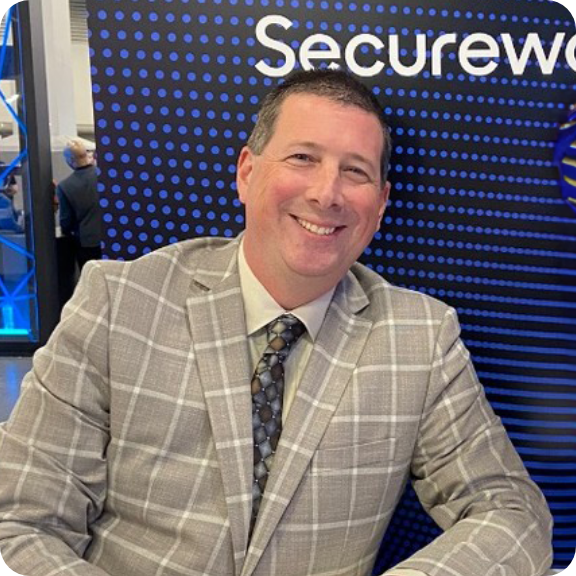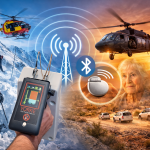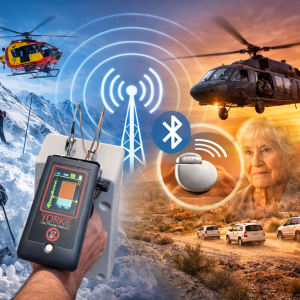Your cart is currently empty!
When Skimmers Steal Dinner: Tech & Politics Behind EBT & SNAP Fraud

When low-income families wake up to find their EBT balance drained overnight, the damage goes far beyond numbers on a screen. The theft of SNAP benefits through card skimming has become a nationwide crisis that exposes deep flaws in America’s digital payment infrastructure — and in the policies that fund and protect it.
Recent U.S. Secret Service operations have uncovered thousands of hidden skimming devices across convenience stores, bodegas, and discount grocers that process SNAP transactions. These devices, often 3D-printed overlays or internally modified readers, silently capture card data and PINs. Criminals then clone that information onto blank cards and “cash out” food benefits within hours, often in a different state.
The victims? Families relying on SNAP to eat, with few legal protections or reimbursement options once their accounts are emptied.
The outdated card problem
EBT cards still rely primarily on magnetic-stripe technology, a design nearly 50 years old. While commercial banks shifted to chip-based EMV cards years ago, many state EBT systems lagged behind due to procurement delays, funding limits, and fragmented vendor networks. Without a secure chip to encrypt transaction data, skimmers can clone stolen EBT mag-stripe cards in seconds.
The USDA has begun pilot programs to roll out chip-based EBT cards, but nationwide adoption remains patchy. Some states are deploying EMV cards in 2025, while others won’t start until 2026 or later — leaving millions still vulnerable.
The economics of modernization
Converting the entire SNAP infrastructure to chip cards sounds simple, but it’s costly and politically complex. Each state manages its own EBT contracts with third-party processors and card manufacturers. Upgrading those systems involves not only issuing millions of new cards but also updating tens of thousands of point-of-sale terminals that may not yet accept SNAP chip transactions.
For small retailers and corner stores — often the only grocery source in food deserts — the cost of terminal upgrades can be prohibitive. Without federal subsidies or mandates, many merchants delay improvements, extending the window for fraudsters.
The policy blind spot
In 2022, Congress temporarily allowed states to reimburse victims of EBT skimming using federal funds, but those provisions were narrow and time-limited. Once they expired, many states again had to decide whether to replace stolen benefits out of their own budgets. Predictably, replacement programs vary widely, leaving victims in some regions fully compensated and others completely unprotected.
The result is a moral hazard: states that replace stolen benefits without a permanent federal backstop face higher costs, while those that don’t leave vulnerable citizens hungry. Until Washington creates consistent national reimbursement and modernization policies, EBT skimming remains as much a political failure as a technical one.
Organized crime, not petty theft
Skimming operations are rarely solo acts. Investigators routinely trace EBT skimmer data to organized networks that operate across multiple states, using encrypted messaging apps and foreign money mules to launder proceeds. The same groups responsible for ATM and gas-pump skimming have adapted their methods to SNAP terminals — because the risk is lower and victims are less likely to notice right away.
That’s why federal task forces have become critical. The Secret Service’s recent “Operation SNAP Guard” highlights how coordinated sweeps combining local police, retail associations, and federal agents can uncover hundreds of devices in a single weekend.
The technological counterattack
While the federal modernization efforts grind through budgets and bureaucracy, some states and retailers are taking matters into their own hands with portable skimmer detection tools.
Handheld scanners like Skim Scan® and Skim Swipe™ — both designed for law enforcement and retail security teams — detect hidden electronics, magnetic readers, and Bluetooth skimmer components before thieves can harvest card data. These compact devices scan ATMs, fuel pumps, or POS terminals for wireless and physical skimmers in seconds.
Where chip cards and software updates are slow to deploy, such detection hardware fills the gap, allowing frontline workers and inspectors to proactively locate compromised readers instead of waiting for fraud reports to surface.
A coordinated fix — technical and political
Protecting SNAP benefits demands more than catching a few criminals or swapping a few card readers. It requires a multi-layered response:
- Modernize all EBT cards to EMV chips and mandate merchant software updates that disable mag-stripe fallback.
- Fund small-merchant terminal upgrades through federal grants or tax incentives.
- Establish permanent reimbursement authority for victims of skimming, so that no family goes hungry while waiting for policy debates.
- Expand federal-state enforcement sweeps, using portable tools like Skim Scan and Skim Swipe to root out active skimmers before they strike.
Until those steps are taken, America’s most vulnerable consumers will remain caught in a cruel paradox: the digital transformation of welfare without the digital protection of banking.
For agencies, lawmakers, and retailers alike, the message is clear — securing SNAP isn’t just a technical challenge. It’s a test of political will, economic equity, and national commitment to the people these programs are meant to serve.

Scott Schober
CEO | Author | Speaker at Berkeley Varitronics Systems
Scott Schober presents at cybersecurity and wireless security conferences for banking, insurance, transportation, construction, telecommunications and law enforcement industries. He has overseen the development of dozens of wireless test, security, safety and cybersecurity products used to enforce a “no cell phone policy” in correctional, law enforcement, and secured government facilities. Scott regularly appears on network news programs including Fox, Bloomberg, Good Morning America, CNN, MSNBC, NPR and many more. He is the author of 'Senior Cyber', 'Cybersecurity is Everybody's Business' and 'Hacked Again', the “original hacker’s dictionary for small business owners” - Forbes Magazine.
Latest Posts
Have questions?
Berkeley sales and engineering staff will answer all of your technical, delivery and pricing questions. Contact us today.






Leave a Reply